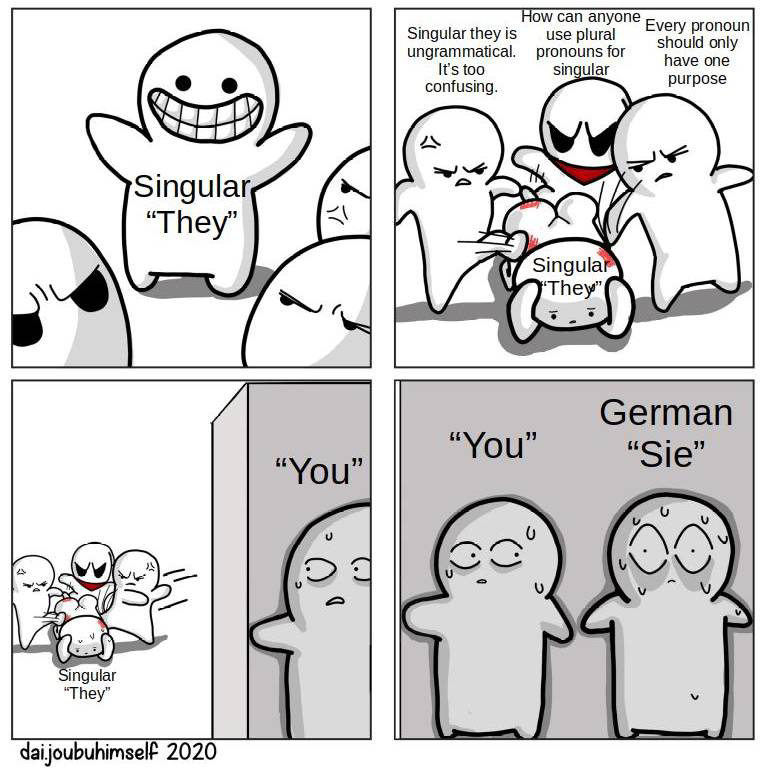this post was submitted on 24 Jul 2023
7 points (100.0% liked)
196
18087 readers
850 users here now
Be sure to follow the rule before you head out.
Rule: You must post before you leave.
Other rules
Behavior rules:
- No bigotry (transphobia, racism, etc…)
- No genocide denial
- No support for authoritarian behaviour (incl. Tankies)
- No namecalling
- Accounts from lemmygrad.ml, threads.net, or hexbear.net are held to higher standards
- Other things seen as cleary bad
Posting rules:
- No AI generated content (DALL-E etc…)
- No advertisements
- No gore / violence
- Mutual aid posts are not allowed
NSFW: NSFW content is permitted but it must be tagged and have content warnings. Anything that doesn't adhere to this will be removed. Content warnings should be added like: [penis], [explicit description of sex]. Non-sexualized breasts of any gender are not considered inappropriate and therefore do not need to be blurred/tagged.
If you have any questions, feel free to contact us on our matrix channel or email.
Other 196's:
founded 2 years ago
MODERATORS
you are viewing a single comment's thread
view the rest of the comments
view the rest of the comments

The root of the problem is that it's an indirect reference to an individual. They/them is commonly (until very recently) referring to a party (singular or plural) that isn't present. When you use it as a direct reference to someone who is present, most people feel like it's incorrect because of the common usage of the term being indirect.
When speaking to someone about Joe: "Joe doesn't know what they're talking about" While directly: "Joe, you don't know what you're talking about"
Both are correct, and possibly the most correct forms of the statements. Substitute Joe for whatever name and it still works. Meanwhile, it's uncommon, in Joe's presence, when not taking to Joe, to refer to (assuming Joe is using gendered pronouns) him as a he/him. "Joe doesn't know what he's talking about"
Both cases are singular, but the difference of Joe being there changes "they" to "he", and not taking directly to Joe changes "you" to "he".
The problem isn't plural vs singular, the problem is direct vs indirect reference.